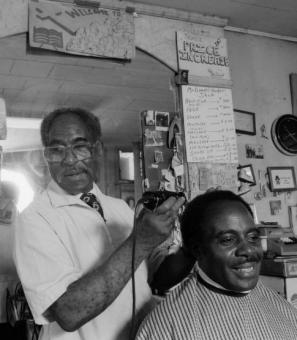George Washington's Complicated Relationship with His Mother
When one thinks about George Washington they probably think of the general that led America to victory in the Revolutionary War or the first president of the United States. What they may not think about is someone with a sometimes complicated relationship with his mother. Beyond the stories and mythos of historical figures, it's sometimes easy to forget that they were still human with families and, sometimes, petty drama behind the scenes. Such was the case with George Washington and his mother, Mary Ball Washington.
As the Grandmother of our country, Mary Washington has had an interesting place in history. While she isn’t as famous as her son, she still receives recognition not only for her role as the woman who raised George Washington and his siblings, but for how strong willed and independent she was while running Ferry Farm, the family estate on the Rappahannock River, after her husband died in 1743.1 However, some historians have found some evidence of strain in her relationship with her famous son.2 While George loved his mother, they did have “disagreements” from time to time and a lot of them seemed to involve money.
Mary did not have an easy life. By the age of 12 she had lost both parents and was living with her uncle, Colonel George Eskridge.3 As a young adult, she married Augustine Washington, and shortly after would give birth to George Washington and eventually his 5 younger siblings. She would lose one of the 5 in infancy and by the time George was about 10, Augustine would pass away, leaving her in charge of all of the kids and the farm.4 She survived all of this and managed to successfully run Ferry Farm and raise her kids through every hardship life threw at them. But one of the side effects of her life experience was that it made her very frugal and afraid of not being able to support herself or those who relied on her.5 This fear continued to shape her worldview even after her children were grown.
One of the first examples of this was in 1755 while George was serving under General Braddock in the French and Indian war. While he was away with the army, Mary Washington wrote to her son asking for Butter and a Dutch Servant.6 George, being in the middle of a war, wrote back and said that he couldn’t provide her either, seeing as he was “quite out of that part of the Country where either are to be had, there being few or no Inhabitants where we now lie Encampd, & butter cannot be had here to supply the wants of the army”.7 While he failed to grocery shop for his mother on the battlefield, he did manage to survive the war and was making a name for himself.
Augustine’s will said that Ferry Farm would be transferred to George when he turned 21, but when that date had passed George allowed his mother to stay there and earn all of the profits from the farm.8 When Mary was too old to truly run the farm, George bought her a house in Fredericksburg near his sister Betty's plantation Kenmore, and paid to help her move in.9 Despite this she reportedly complained publicly that she lacked resources, and even went as far to petition the Virginian House of Delegates requesting money in 1781.10 George, who by that point was preoccupied trying to win the Revolutionary War, quickly intervened. In a letter to the House, he wrote that he, or any of his siblings, would “divide the last sixpence to relieve her from real distress.”11 One can only imagine the emphasis on the word “real” in that statement.
The strain over money would continue. While George had successfully stopped the legislature from giving his mother’s request, he couldn’t stop the requests from coming to him.
In 1787, after another request for money, he wrote a letter to his mother begging her to understand that he had already given her all that he could spare, which wasn’t much because he was already in debt himself. He then suggested that maybe it would be best if she moved in with a family member.12
“Further, my sincere, and pressing advice to you is, to break up housekeeping, hire out all the rest of your servants except a man and a maid and live with one of your Children. This would relieve you entirely from the cares of this world, and leave your mind at ease to reflect, undisturbedly on that which aught to come.”13
After this plea he even offered up his own home for her… and then immediately listed several reasons why she would hate living there and should live with someone else instead: Mount Vernon was a busy place, he frequent guests, she would never have peace and quiet.14 All of his attempts to persuade his mother to live an easier and far less expensive life fell on deaf ears as she continued to live in her home until she lost her battle to breast cancer in 1789.
Despite her complaints about money and her refusal to take George’s advice, it clearly didn’t diminish the love between them. Letters by Washington suggest that one of the things he enjoyed about his new position was that he was able to tell his mother important people from other countries wished her well. As Washington scholar Peter R. Henriques recounted for Colonial Williamsburg’s Trend and Tradition magazine, “Adrienne, Marquise de Lafayette, the wife of Lafayette, wrote to Washington and asked him to send special best wishes to his mother. He responded, ‘My mother will receive the compliments you honor her with, as a flattering mark of your attention; and I shall have great pleasure in delivering them myself.’ The point is that he would enjoy being able to tell his mother that such a prominent person sent special greetings.”15
In 1789, before he traveled to New York to be inaugurated as the first President of the United States, George visited his mother for the last time in Fredericksburg. In a letter to a friend he called the visit his “last act of personal duty” to her.16 When she died that August, he was busy with his job as president, and left the execution of the will to his sister Betty, but noted there were some things in the house that he “set a value on them much beyond their intrinsic worth.”17
Perhaps there is a lesson for all of us in the Washington family: family relationships are complicated. So next time a parent -- or a child -- pushes your buttons, just know that experience is something you, the father of our nation, and every other great figure in history have in common.
Footnotes
- 1
Soja, Taylor. “Mary Ball Washington.” George Washington’s Mount Vernon. Accessed August 11, 2025. https://www.mountvernon.org/library/digitalhistory/digital-encyclopedia/article/mary-ball-washington.
- 2
Dintino, Theresa C. “Mary Ball Washington (American, 1707-1789): The ‘First Mother’ of The United States of America Was Independent and Strong in Character.” Nasty Women Writers, May 9, 2023. https://www.nastywomenwriters.com/mary-ball-washington-the-first-mother-of-the-united-states-of-america-was-kinda-nasty-american-1707-1789/.
- 3
Soja, Taylor. “Mary Ball Washington.” George Washington’s Mount Vernon. Accessed August 11, 2025. https://www.mountvernon.org/library/digitalhistory/digital-encyclopedia/article/mary-ball-washington.
- 4
Soja, Taylor. “Mary Ball Washington.” George Washington’s Mount Vernon. Accessed August 11, 2025. https://www.mountvernon.org/library/digitalhistory/digital-encyclopedia/article/mary-ball-washington.
- 5
Saxton, Martha. “Proud Mary.” George Washington’s Mount Vernon. Accessed August 11, 2025. https://www.mountvernon.org/george-washington/family/mother/proud-mary.
- 6
Schneider, Gregory S. “The Mother Who Made George Washington — and Made Him Miserable.” The Washington Post, May 12, 2017. https://www.washingtonpost.com/news/retropolis/wp/2017/05/12/the-mother-who-made-george-washington-and-made-him-miserable/.
- 7
Washington, George. “George Washington to Mary Ball Washington, 7 June 1755.” Founders Online, University of Virginia Press, June 7, 1755. http://founders.archives.gov/documents/Washington/02-01-02-0150.
- 8
Henriques, Peter. “‘Complicated, Very Complicated.’” Colonial Williamsburg, January 15, 2019. https://www.colonialwilliamsburg.org/discover/resource-hub/trend-tradition-magazine/trend-tradition-winter-2019/complicated-very-complicated/.
- 9
Henriques, Peter. “‘Complicated, Very Complicated.’” Colonial Williamsburg, January 15, 2019. https://www.colonialwilliamsburg.org/discover/resource-hub/trend-tradition-magazine/trend-tradition-winter-2019/complicated-very-complicated/.
- 10
Schneider, Gregory S. “The Mother Who Made George Washington — and Made Him Miserable.” The Washington Post, May 12, 2017. https://www.washingtonpost.com/news/retropolis/wp/2017/05/12/the-mother-who-made-george-washington-and-made-him-miserable/.
- 11
Schneider, Gregory S. “The Mother Who Made George Washington — and Made Him Miserable.” The Washington Post, May 12, 2017. https://www.washingtonpost.com/news/retropolis/wp/2017/05/12/the-mother-who-made-george-washington-and-made-him-miserable/.
- 12
Washington, George. “George Washington to Mary Ball Washington, 15 February 1787.” Founders Online, University of Virginia Press, February 15, 1787. http://founders.archives.gov/documents/Washington/04-05-02-0030.
- 13
Washington, George. “George Washington to Mary Ball Washington, 15 February 1787.” Founders Online, University of Virginia Press, February 15, 1787. http://founders.archives.gov/documents/Washington/04-05-02-0030.
- 14
Washington, George. “George Washington to Mary Ball Washington, 15 February 1787.” Founders Online, University of Virginia Press, February 15, 1787. http://founders.archives.gov/documents/Washington/04-05-02-0030.
- 15
Henriques, Peter. “‘Complicated, Very Complicated.’” Colonial Williamsburg, January 15, 2019. https://www.colonialwilliamsburg.org/discover/resource-hub/trend-tradition-magazine/trend-tradition-winter-2019/complicated-very-complicated/.
- 16
Washington, George. “George Washington to Richard Conway, 6 March 1789.” Founders Online, University of Virginia Press, March 6, 1789. http://founders.archives.gov/documents/Washington/05-01-02-0279.
- 17
Washington, George. “George Washington to Betty Washington Lewis, 13 September 1789.” Founders Online, University of Virginia Press, September 13, 1789. http://founders.archives.gov/documents/Washington/05-04-02-0017.



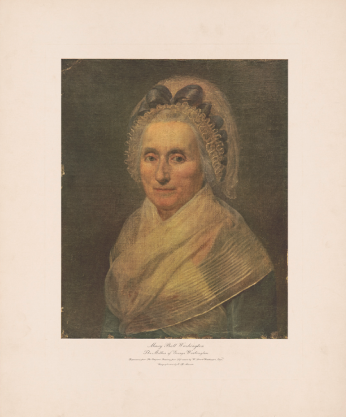
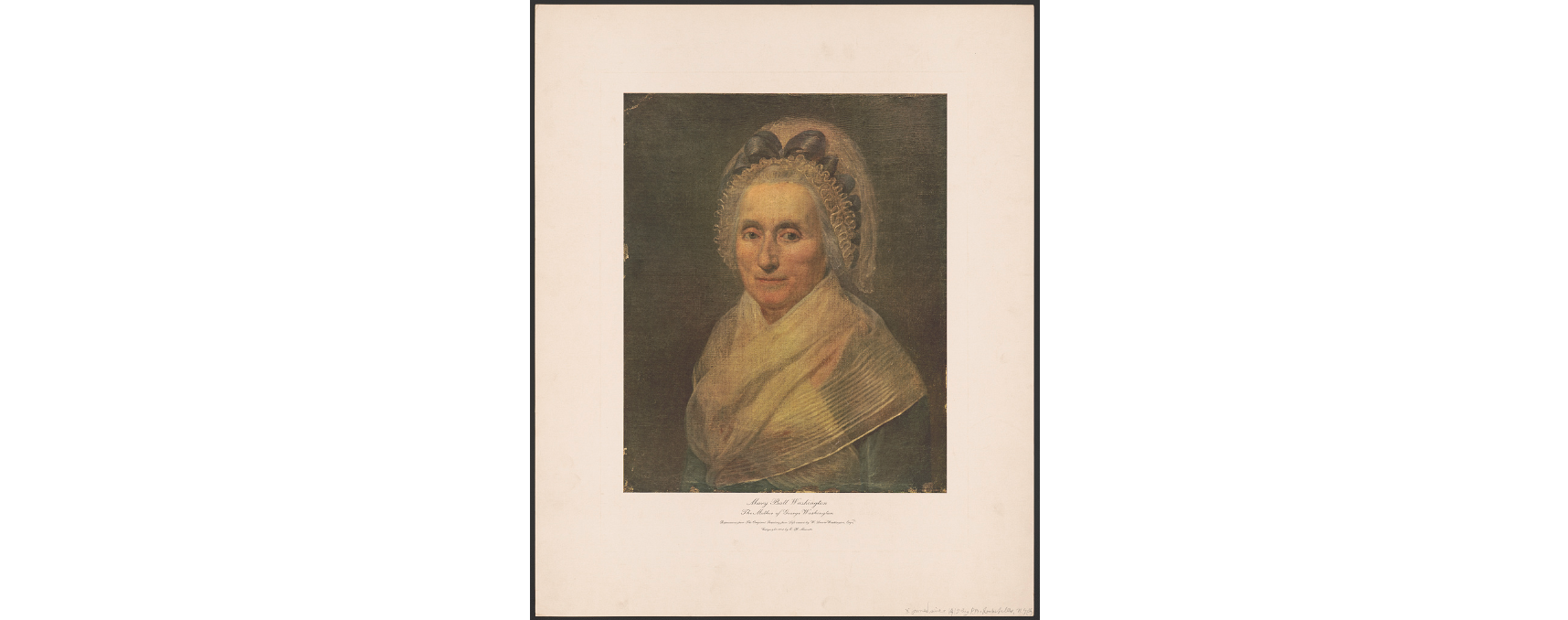
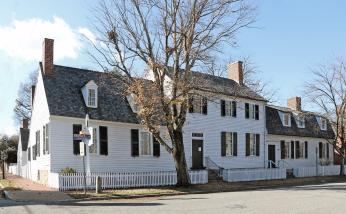
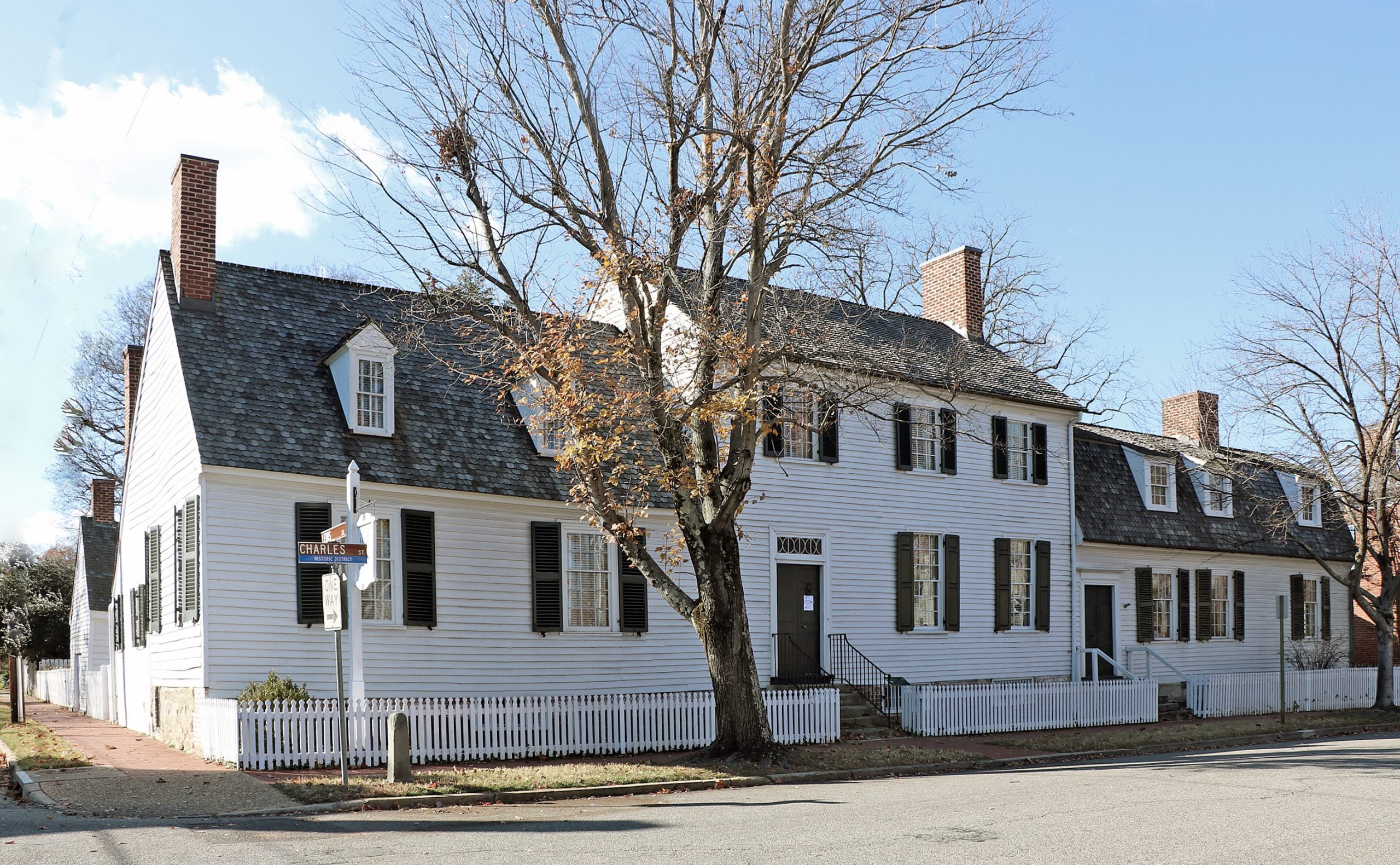
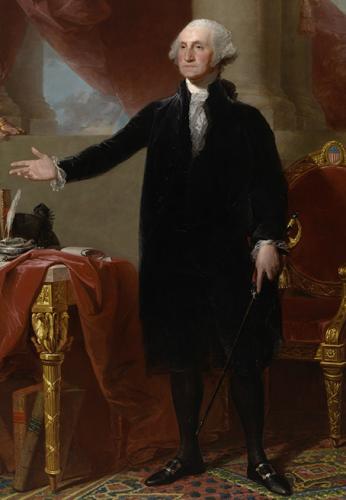
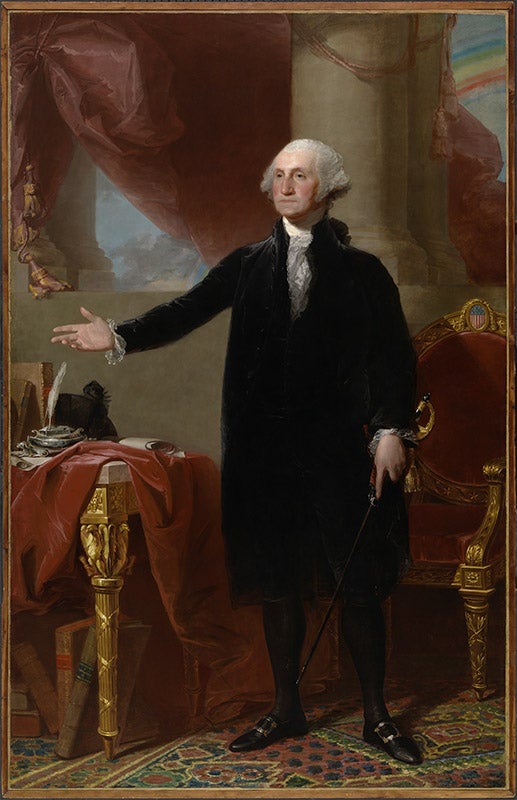
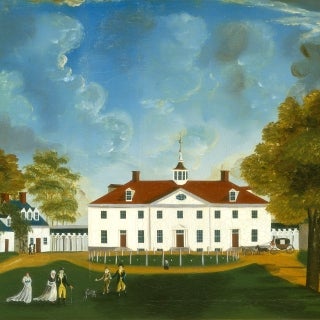
![Newspaper advertisement for Ona Judge, runaway slave [Source: Encyclopedia Virginia]](/sites/default/files/styles/crop_320x320/public/2024-05/Ona%20Judge%20-%20Runaway%20Ad.jpg?h=10a38b52&itok=0_-DEpCm)

![Sketch of the mythical fuan by Pearson Scott Foresman. [Source: Wikipedia]](/sites/default/files/styles/crop_320x320/public/2023-10/Goatman_Wikipedia_Faun_2_%28PSF%29.png?h=64a074ff&itok=C9Qh-PE1)











